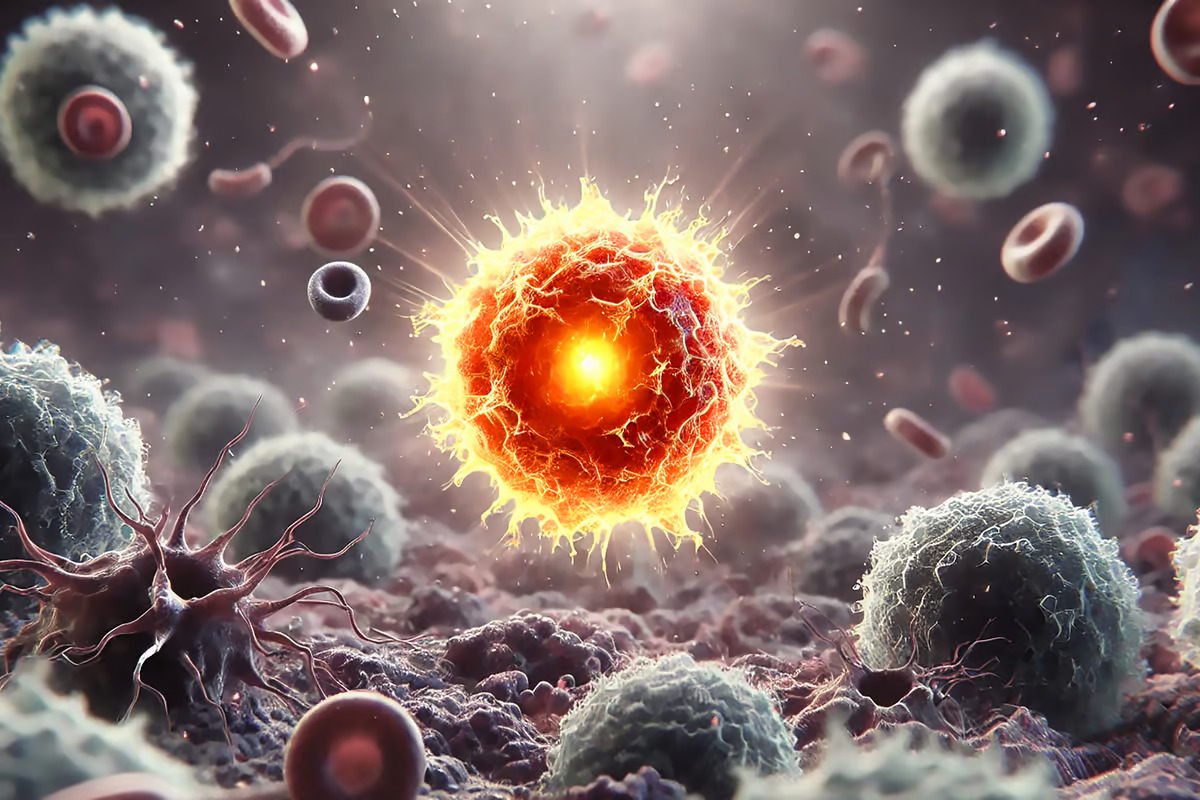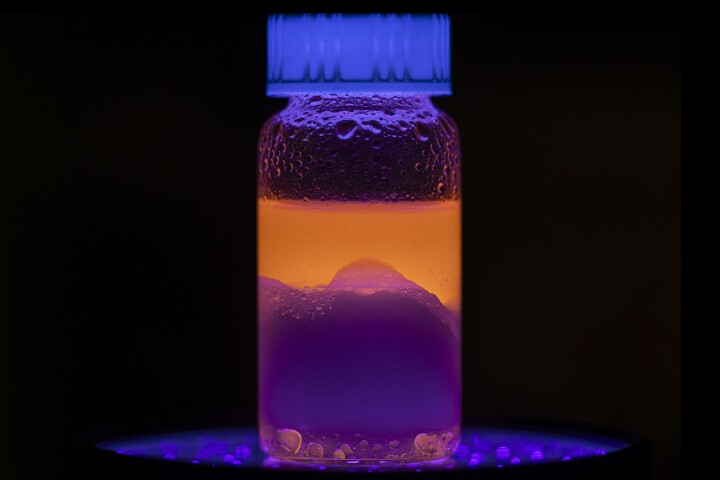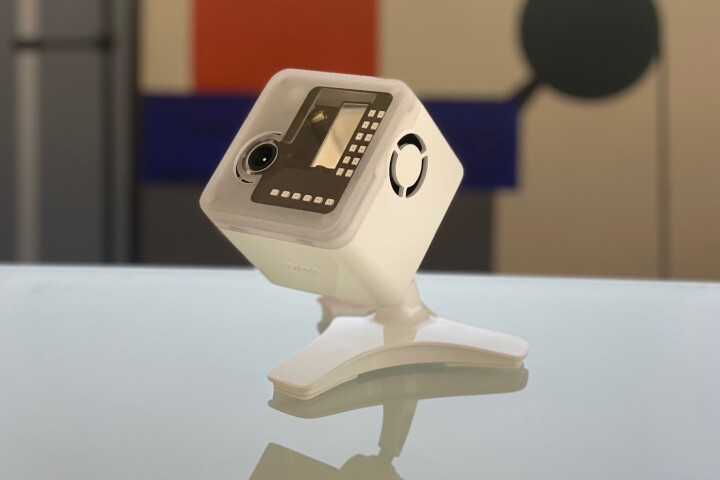 Stem-like T cells can re-energize an exhausted immune system. DALL-E –
Stem-like T cells can re-energize an exhausted immune system. DALL-E –
Battling a chronic disease is like running a marathon where T cells, the immune system’s frontline defenders, are the runners. When the starter’s pistol fires, the runners are fast and strong. However, the longer the marathon, the more the runners’ energy reserves are drained, making reaching the finish line – eradicating cancer, say – increasingly difficult.
New research led by the Melbourne-based Peter Doherty Institute for Infection and Immunity (Doherty Institute) and the Peter MacCallum Cancer Center (Peter Mac) has identified a rare type of T cell with the power of self-renewal that could be the answer to enabling a long-lasting immune response against chronic diseases.
“Exhausted immune cells remain one of the biggest challenges in treating chronic diseases,” said Dr Daniel Utzschneider, laboratory head of the Doherty Institute’s Department of Microbiology and Immunology at the University of Melbourne and one of the study’s corresponding authors. “This research provides a roadmap for how we might reinvigorate the immune system to improve health outcomes for people living with cancer or chronic infections like HIV or hepatitis B and C, thanks to these stem-like T cells, the immune system’s secret power.”
Stem-like T cells, as their name suggests, are a subpopulation of T cells that have the properties of stem cells. Their ‘stemness’ provides them with the ability to renew themselves, resisting exhaustion. The researchers discovered that the stem-like T cells’ endurance was fueled by a protein called inhibitor of DNA binding 3, or ID3, which is expressed by a gene of the same name.
“ID3+ T cells have the remarkable ability to resist burnout and maintain a powerful immune response over time, making them particularly effective in the face of chronic infections or cancer,” said Catarina Gago da Graça, a PhD candidate at the Doherty Institute and co-lead author of the study.
The researchers discovered that certain signaling pathways in the body increased the number of ID3+ T cells, which paves the way for developing more effective immunotherapies, such as CAR T cell therapy, the effectiveness of which can diminish over time as the cells become ‘exhausted.’
“We discovered that ID3+ T cell formation could be promoted by specific inflammatory cues, potentially offering new strategies to boost the number of immune cells that excel at fighting cancer in patients,” said Professor Ricky Johnstone, Executive Director of Cancer Research at Peter Mac and another of the study’s co-lead authors. “This could lead to better treatments for cancer patients and improve clinical immunotherapy outcomes.”
In addition to more effective immunotherapies, the understanding gained from the present study could lead to vaccines that provide longer-lasting protection, the researchers say.
Also contributing to this research were the Australian institutions La Trobe University, the University of Melbourne, and the Olivia Newton-John Cancer Research Institute, the University of Birmingham in the UK, and Northwestern University in the US.
The study was published in the journal Science Immunology.
Source: Doherty Institute
–
























